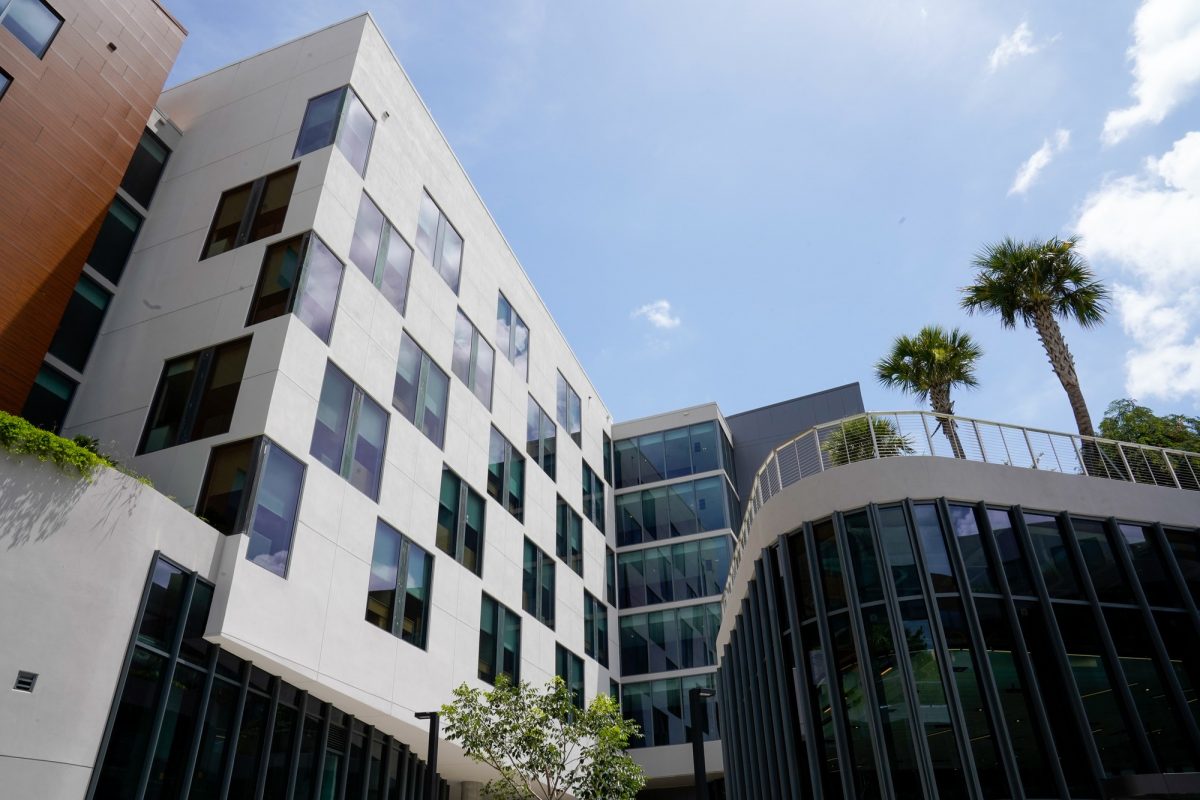By Patricia A. Whitely, vice president of student affairs, and Jessica Brumley, vice president of facilities operations and planning
The lawsuit filed against the City of Coral Gables by a disgruntled, fired mechanical inspector utilizes unfounded scare tactics when describing building code inspections that took place at the University of Miami’s transformational Lakeside Village residential housing complex.
The September 8 article in The Miami Hurricane extensively quoted from the lawsuit and an interview with the employee, Ricardo Arnau, who has fashioned himself as a self-proclaimed “whistleblower” by bringing alleged code violations to light.
Nothing could be further from the truth.
The City of Coral Gables is one of the most aggressive and comprehensive communities in enforcing state and national building codes and regulations, including fire safety codes. As Peter Iglesias, the city manager of Coral Gables and the former senior director of building, planning and zoning for the City of Miami, told Hurricane reporter Esther Animalu, “There are no fire hazards and there are no building code violations in Lakeside Village. Everything in Lakeside is per the Florida Building Code. I have never allowed in my career anything that is not in the code. Ever.”
Over the last decade, the University of Miami has spent millions of dollars in transforming the Coral Gables campus with new construction, whether it is the Donna E. Shalala Student Center, the Patricia Louise Frost Studios, the Simulation Hospital at the School of Nursing and Health Studies, or the Carol Soffer Indoor Practice Facility. Each building has gone through rigorous inspections, reviews, and approvals.
Donors have provided millions of dollars in gifts to the University to cover much of the cost. They do this because they trust the University’s leadership to be good stewards of their money and our higher education institution.
Parents also entrust us to protect the health and safety of their children. Nothing is more sacred. Nothing is more important. During this global pandemic, the University has spent millions of dollars to enhance protective measures for our students, faculty members, and staff.
This sacred trust applies to every action we take in providing a first-class education and campus experience to our students. That includes, most importantly, our residential housing. The University is extremely proud of Lakeside Village, which has quickly become a signature complex of inter-connected buildings on campus, offering unique and attractive living and working spaces.
It is shameful that the opening of Lakeside Village has been marred by a Miami Hurricane article that places so much weight on the words of an individual who has a personal beef with his former employer, the City of Coral Gables.
The article says the fired inspector’s lawsuit alleges code violations that could result in “life-threatening danger to students.” After the article was published, some students living at Lakeside Village reached out to University leadership, expressing concern. This is understandable and unfortunate.
The Lakeside Village housing complex, designed and built by extraordinarily professional companies with whom the University has worked with before, took four years to complete. No corners were cut. No codes or regulations overlooked.
Central to the fired inspector’s lawsuit is the allegation that fire hazards exist in the ducts and clothing dryers. Not true. The installation of the duct work and clothing dryers was approved after comprehensive inspection and review to ensure the work complied with the Florida Building Code, the Florida Mechanical Code, and national fire codes developed by the National Fire Protection Association.
The fired inspector also alleges in his lawsuit that not enough FyreWrap, which is a fire-protection wrap for ducts, was used in the installation process. Again, the work at Lakeside Village, including all duct work involving the dryer vents, was completed according to building and fire codes. The installation of the FyreWrap meets the national testing standards required by the Florida Building Code.
In addition, the University of Miami has a preventive maintenance program in place for the regular inspection, maintenance, and cleaning of all common area dryer ducts to prevent the accumulation of lint.
The University was aware The Miami Hurricane was working on this story. We provided a statement, which was included in the article and stated, in part, that all work at Lakeside Village was done “in compliance with state and national building codes, including fire and safety codes.”
However, after receiving emails from students who are concerned about their safety, we needed to speak up further. Every individual at the University of Miami should demand that the University do the right thing, whatever the issue. It is healthy for you to hold us accountable, and we expect tough questions. And what we pledge, in response, is that we will tell you the truth.
’Canes Care for ’Canes.
Editor’s Note
This op-ed references an article published in The Miami Hurricane on Sept. 8 detailing a lawsuit brought by a former city of Coral Gables inspector who was hired to review Lakeside Village.
The Miami Hurricane reached out to UM administration multiple times for comment. The administration declined to participate in an interview and repeatedly declined to answer specific questions. Instead, a blanket written statement which was emailed to The Hurricane was included in the original article.
The Miami Hurricane and its editors stand behind the article and its reporting.






